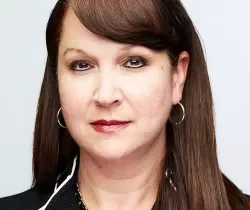Rachel Wimberly

Rachel Wimberly is Executive Vice President of Business Development at Tarsus Group, US. Follow her on Twitter @TSNN_Rachel.

UPDATE - Tues. Feb. 28 - Breaking News - TSEA transfers members, assets to EACA --- more on TSNN HERE.
I started hearing rumors a while ago about the possible fate of the Trade Show Exhibitors Association, most suggesting the organization was going to close its doors.
I’ve been a journalist for a long time, and I firmly believe in two things about rumors: 1.) I would never, ever print one unless it was confirmed and 2.) Usually rumors don’t start in a vacuum – there tends to be something to them, although they might be a different version of what’s being spread around.
The TSEA rumors started picking up steam last week, and then on Friday, Exhibit City News sent out news saying “Over the last few days, Exhibit City News has heard circling comments from several industry sources regarding the welfare of the Trade Show Exhibitors Association (TSEA). Although ECN has tried to verify this information with TSEA’s president as well as the marketing director, there was no response from either.”
The article continued to say that “the TSEA has steadily been losing income and incurring debts,” as well as losing membership, while continuing with daily operations.
I immediately reached out to TSEA President and CEO Margit B. Weisgal asking if the organization was indeed going to close down, and she wrote an e-mail saying: “Board discussions are underway as to the future of TSEA. We are considering a change in management and membership structure to provide long term viability to the Association. We are sure rumors may abound, but there are no truths to what you are hearing, and until the Board issues its official statement, we have nothing more to add.”
TSEA was started in 1966 and currently has 5,000 members. It manages the all-important Certified Manager of Exhibits program, along with HCEA, and offers networking and education for a segment of the industry – exhibitors and suppliers – who often feel overlooked.
With the economic downturn putting pressure on all organizations to prove their value more than ever before to not only maintain, but also try and grow their membership, TSEA faced some big challenges, including the loss of the trade show, TS2, that had anchored the organization’s annual meeting.
Last year, National Trade Productions, which bought TS2 from TSEA, canceled the event, and according to a message on the TSEA Web site, dates for the 2012 show were meant to be announced early this year.
Without the trade show, Weisgal and her team put a lot of time and resources into making the 2011 annual meeting, the Red Diamond Congress, an event that still would pull in attendees without the lure of the exhibit floor. See TSNN article HERE on TSEA’s efforts.
Around the same time the ‘closing down’ rumors started heating up David Mihalik, CEO of ELITeXPO Tradeshow Services and board director at TSEA, posted a question in the organization’s LinkedIn group – “What do you expect from your TSEA?” saying he thinks the organization has value, but wanted to hear from members (or even potential members). LinkedIn discussion is HERE.
Several members commented, and most said they absolutely saw the value in being a member of TSEA, especially praising the association’s advocacy efforts, education and networking opportunities.
But, there also there were others who said TSEA needed to have a more global focus, as well as a reorganization and new strategy moving into the future.
The bottom line is without TSEA, exhibitors would lose an organization that is dedicated to representing their voice in the industry.
Trade show managers, convention and meeting planners and even specific niches of suppliers all have cohesive organizations that are constantly tasked with creating value for their members, but those groups aren’t as far-flung as the huge universe of exhibitors.
In the LinkedIn thread, Weisgal commented: “Associations are made up of people with common interests, common concerns, common needs and wants and, most important, the willingness to share knowledge and expertise with their cohorts. Maybe TSEA's reorganization will be a wake-up call to the 5,000 members of this group that the association, its mission and membership are worthwhile and a worthy investment. I believe in TSEA as, hopefully, do you.”

Add new comment